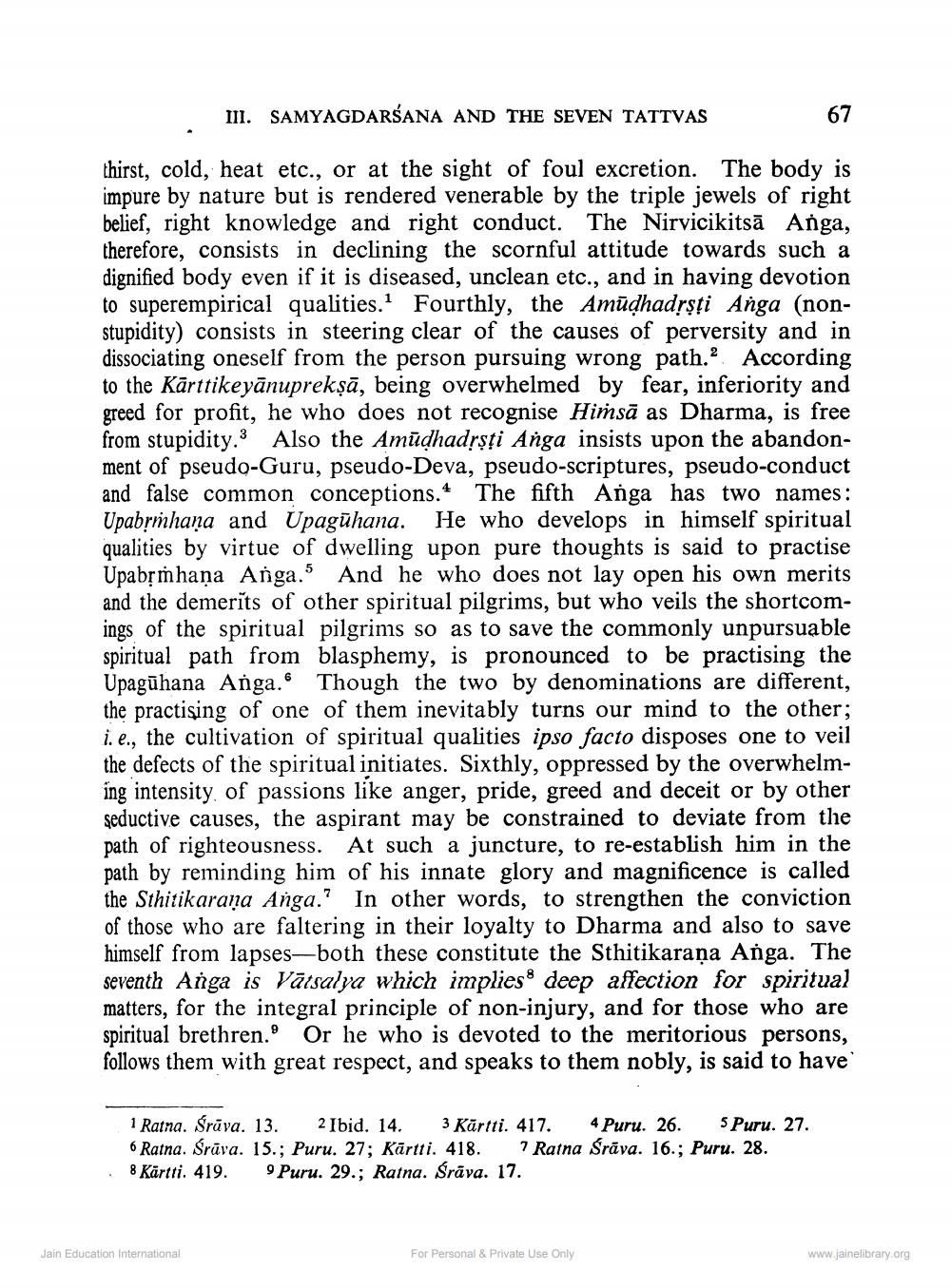________________
III. SAMYAGDARSANA AND THE SEVEN TATTVAS
67
thirst, cold, heat etc., or at the sight of foul excretion. The body is impure by nature but is rendered venerable by the triple jewels of right belief, right knowledge and right conduct. The Nirvicikitsā Anga, therefore, consists in declining the scornful attitude towards such a dignified body even if it is diseased, unclean etc., and in having devotion to superempirical qualities.1 Fourthly, the Amuḍhadṛṣṭi Anga (nonstupidity) consists in steering clear of the causes of perversity and in dissociating oneself from the person pursuing wrong path.2 According to the Kārttikeyanuprekṣā, being overwhelmed by fear, inferiority and greed for profit, he who does not recognise Himsā as Dharma, is free from stupidity. Also the Amudhadṛṣṭi Anga insists upon the abandonment of pseudo-Guru, pseudo-Deva, pseudo-scriptures, pseudo-conduct and false common conceptions. The fifth Anga has two names: Upabṛmhana and Upaguhana. He who develops in himself spiritual qualities by virtue of dwelling upon pure thoughts is said to practise Upabṛmhana Anga.5 And he who does not lay open his own merits and the demerits of other spiritual pilgrims, but who veils the shortcomings of the spiritual pilgrims so as to save the commonly unpursuable spiritual path from blasphemy, is pronounced to be practising the Upaguhana Anga. Though the two by denominations are different, the practising of one of them inevitably turns our mind to the other; i. e., the cultivation of spiritual qualities ipso facto disposes one to veil the defects of the spiritual initiates. Sixthly, oppressed by the overwhelming intensity of passions like anger, pride, greed and deceit or by other seductive causes, the aspirant may be constrained to deviate from the path of righteousness. At such a juncture, to re-establish him in the path by reminding him of his innate glory and magnificence is called the Sthitikarana Anga. In other words, to strengthen the conviction of those who are faltering in their loyalty to Dharma and also to save himself from lapses-both these constitute the Sthitikaraṇa Anga. The seventh Anga is Vatsalya which implies deep affection for spiritual matters, for the integral principle of non-injury, and for those who are spiritual brethren.o Or he who is devoted to the meritorious persons, follows them with great respect, and speaks to them nobly, is said to have
1 Ratna. Śrāva. 13. 2 Ibid. 14.
3 Kärtti. 417. 4 Puru. 26. 5 Puru. 27.
6 Ratna. Śrāva. 15.; Puru. 27; Kärtti. 418. 7 Ratna Śrāva. 16.; Puru. 28.
8 Kärtti. 419. 9 Puru. 29.; Ratna. Śrāva. 17.
Jain Education International
For Personal & Private Use Only
www.jainelibrary.org




